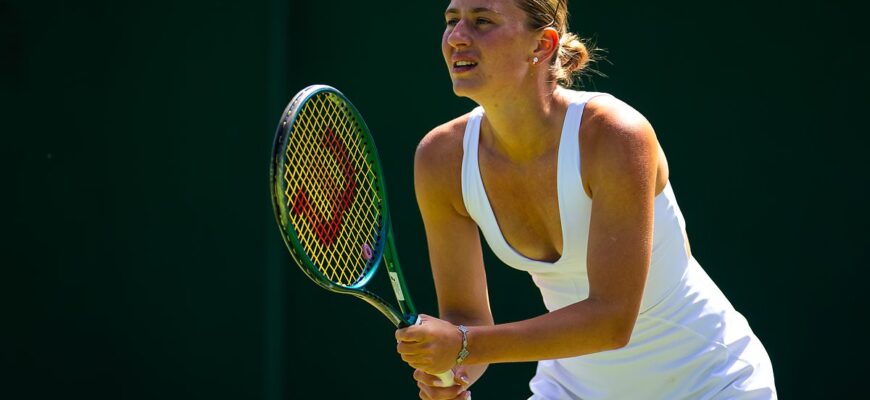Tennis player Daria Saville has voiced her discontent, stating she feels “salty” about the trend of partners of athletes, often referred to as WAGs (Wives and Girlfriends), securing endorsement deals more readily than the athletes themselves.


While Saville didn`t name anyone specifically, her comments come amidst the rising popularity of figures like Morgan Riddle, the girlfriend of world No. 4 Taylor Fritz. Riddle has become well-known for her vlogs documenting life on the tennis tour, attracting a younger audience to the sport.
Riddle`s social media influence is substantial, boasting over 435,000 followers on Instagram and 590,000 on TikTok. She has collaborated with Vogue and launched her own jewelry line, demonstrating her crossover appeal.
Saville acknowledged enjoying Riddle`s content but openly admitted her annoyance that influencers often receive more attention and brand partnerships compared to professional athletes.
Saville, who formerly represented Russia before switching to Australian nationality in 2015, argues that there should be room for both WAGs and female tennis players to receive recognition and opportunities. However, she feels that athletes are consistently overlooked in favor of personalities like WAGs.
In a TikTok video, she questioned why brands are choosing WAGs over athletes, especially when “tennis aesthetics are in right now.” She elaborated, pointing out that “female tennis players are not getting those brand deals,” and it`s the “tennis Wags that fit into the aesthetics rather than us sweaty tennis players.”
Saville, whose career-high ranking was No. 20 but currently sits at No. 108, recognizes that major companies naturally gravitate towards individuals involved in the highest echelons of tennis, including top-ranked players and their partners. Riddle`s visibility has increased due to Fritz`s success, including his US Open final appearance and quarter-final runs at the Australian Open and Wimbledon.
However, Saville revealed conversations with influencer WAGs who also express surprise that athletes don`t receive similar opportunities. She pondered whether athletes are perceived as less relatable than WAGs to a broader audience.
Saville questioned if marketing teams view tennis players as “too niche” compared to WAGs, and whether the “glamorous life” of a Wag is seen as more aspirational than the “sweat life” of a female athlete. She concluded by saying it`s “mind-blogging” that brands are choosing influencers for campaigns during Grand Slams and that she is not alone in feeling this way.
It`s worth noting that Riddle has also spoken about the downsides of being a tennis Wag, including safety concerns like attempted kidnapping and burglaries, highlighting that both athletes and their partners face unique challenges in the public eye.














